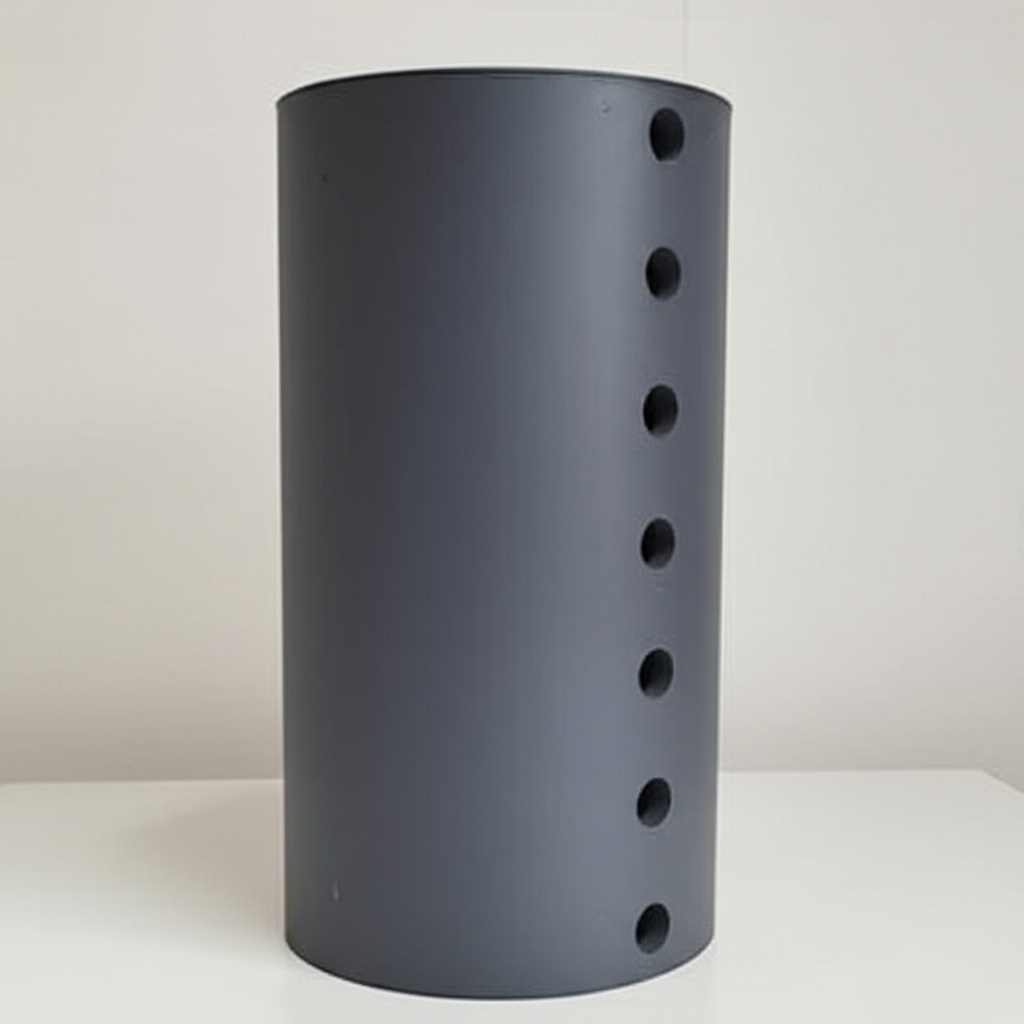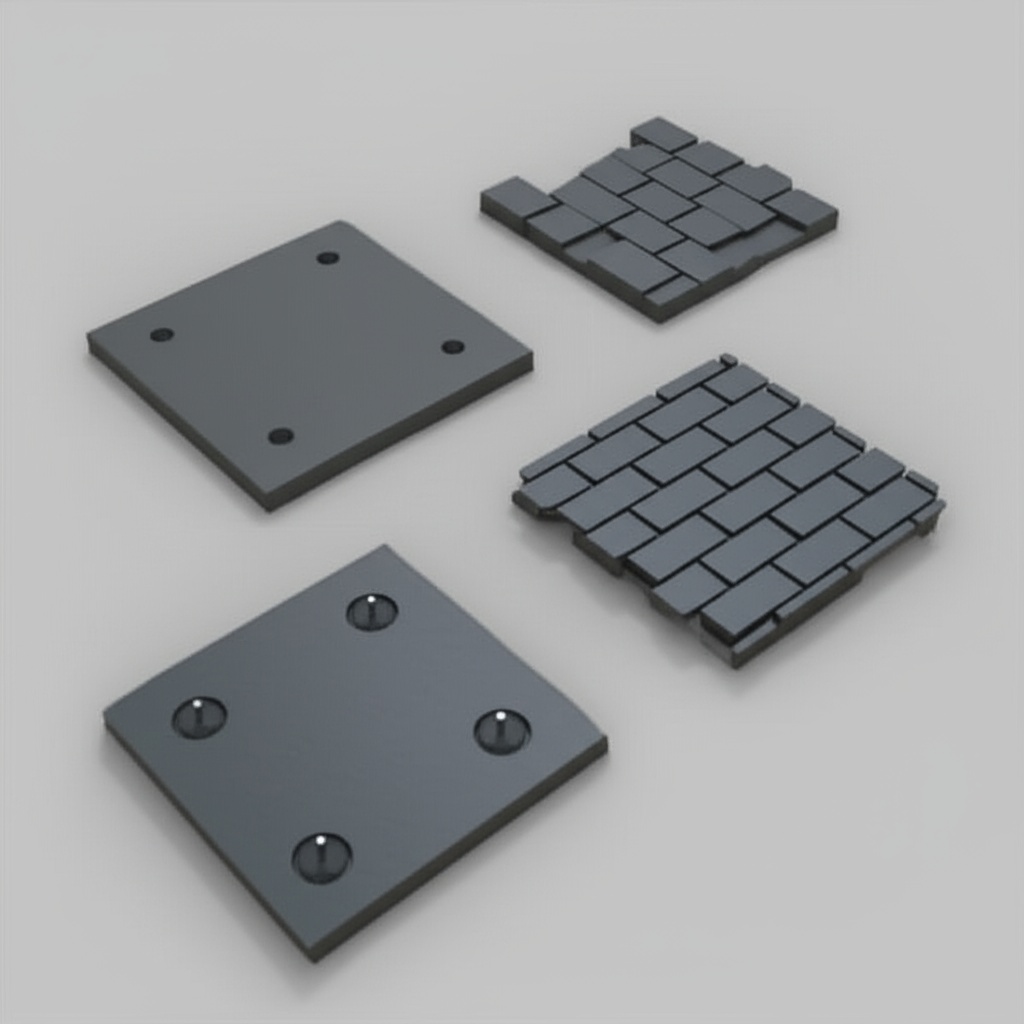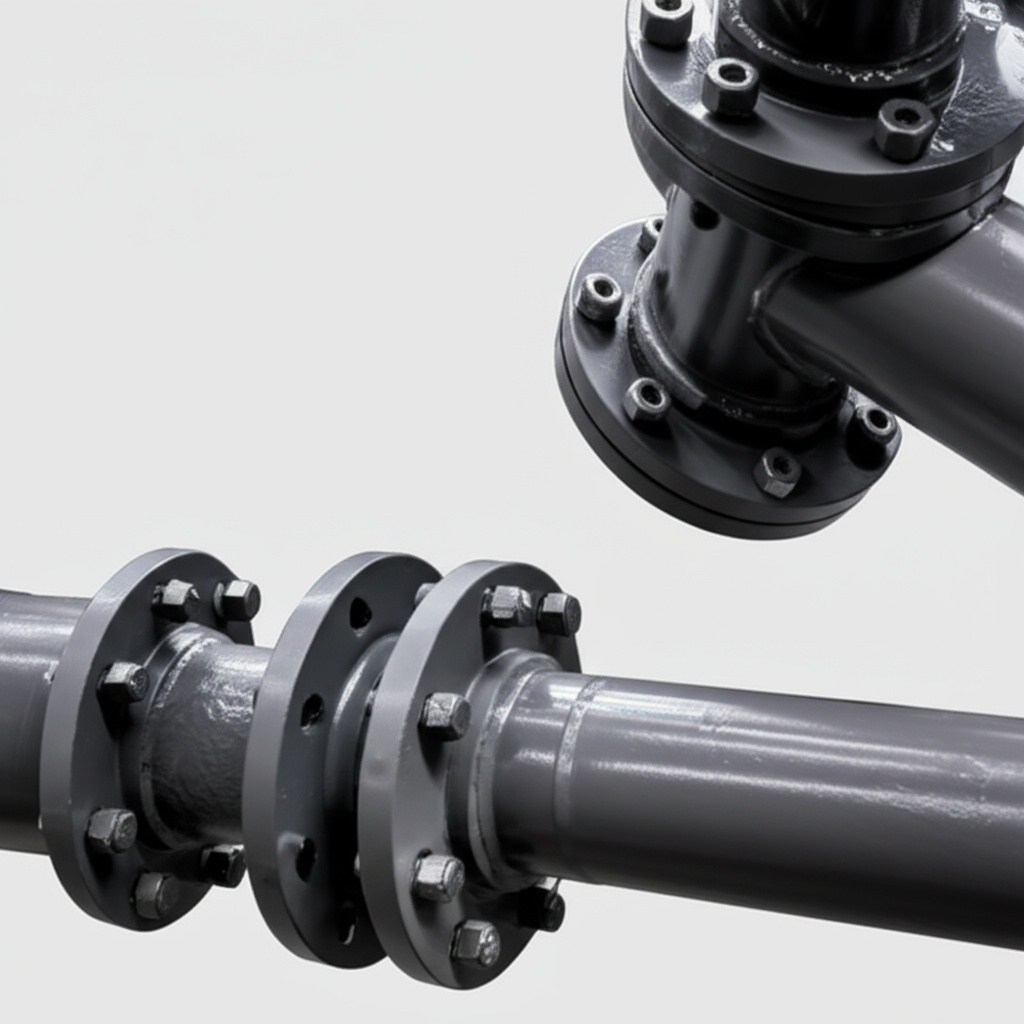Vietnam’s Emerging SiC Market & Potential

Share
Vietnam’s Emerging SiC Market & Potential
The global demand for high-performance materials continues to surge, driven by advancements in critical industries. Among these, Silicon Carbide (SiC) stands out as a material of unparalleled versatility and performance, particularly in demanding environments. As industries worldwide seek innovative solutions for efficiency, durability, and extreme conditions, the spotlight is increasingly turning to regions offering robust manufacturing capabilities and a burgeoning market for advanced materials. Vietnam, with its strategic location and growing industrial landscape, is emerging as a significant player in the SiC market, presenting immense potential for custom silicon carbide products and equipment.
This blog post will delve into the exciting landscape of SiC in Vietnam, exploring its diverse applications, the advantages of custom SiC solutions, and key considerations for engineers, procurement managers, and technical buyers. We will also introduce a key partner in this journey, offering unparalleled expertise and support in custom SiC manufacturing.
SiC: Essential in High-Performance Industrial Applications
Custom silicon carbide products are not just components; they are foundational elements enabling breakthroughs across a spectrum of high-performance industrial applications. Their unique combination of properties—extreme hardness, high thermal conductivity, excellent wear resistance, exceptional chemical inertness, and superior semiconductor properties—make them indispensable where other materials fail. From the precision demands of semiconductor manufacturing to the harsh environments of aerospace and defense, SiC delivers reliability and enhanced performance.
Main Applications: SiC Across Industries
The versatility of SiC allows for its widespread adoption in numerous sectors, driving innovation and efficiency. The demand for advanced materials like SiC in Vietnam is growing as these industries expand their domestic manufacturing capabilities and global reach.
| Industry | Key SiC Applications | Benefits of SiC |
|---|---|---|
| Semiconductor Manufacturing | Wafer carriers, susceptors, process chamber components, electrostatic chucks, furnace components, SiC semiconductors | High purity, thermal stability, plasma resistance, excellent thermal management for SiC power devices and SiC wafers. |
| Automotive Industry | EV inverters, on-board chargers, DC-DC converters, power modules, brake discs, wear parts | Increased efficiency, reduced weight, higher power density, extended range for electric vehicles, improved braking performance. |
| Aerospace Companies | Thermal management systems, high-temperature components, rocket nozzles, lightweight structural parts, turbine components | High strength-to-weight ratio, extreme temperature resistance, oxidation resistance, durability in harsh environments. |
| Power Electronics Manufacturers | High-voltage switches, diodes, MOSFETs, power modules for grid infrastructure, solar inverters, motor drives | Lower switching losses, higher operating temperatures, compact designs, improved energy efficiency for SiC power devices. |
| Renewable Energy Companies | Solar inverters, wind turbine converters, energy storage systems, power conditioning units | Enhanced efficiency, robust performance in fluctuating conditions, extended lifespan for solar and wind applications. |
| Metallurgical Companies | Furnace linings, kiln furniture, crucibles, heat exchangers, refractories, high-temperature processing equipment | Exceptional thermal shock resistance, chemical inertness, resistance to molten metals and slag. |
| Defense Contractors | Lightweight armor, high-temperature components for propulsion systems, optical components, missile radomes | Ballistic protection, thermal stability, robust performance in extreme conditions. |
| Chemical Processing Companies | Heat exchangers, pump components, valve parts, seals, catalyst supports, corrosion-resistant linings | Excellent corrosion resistance to acids and alkalis, high temperature stability in aggressive chemical environments. |
| LED Manufacturers | Substrates for LEDs, heat sinks, high-temperature fixtures | High thermal conductivity for efficient heat dissipation, enabling brighter and more reliable LED lighting. |
| Industrial Equipment Manufacturers | Wear plates, nozzles, seals, bearings, grinding media, industrial pump components | Superior wear resistance, extended lifespan, reduced maintenance in abrasive and corrosive environments. |
| Telecommunications Companies | High-frequency components, RF power devices, thermal management solutions for base stations | High power handling, compact design, efficient heat dissipation for telecommunications infrastructure. |
| Oil and Gas Companies | Downhole tools, wear parts for pumps and valves, seals in corrosive environments | Resistance to abrasive slurries, high temperatures, and corrosive chemicals in challenging drilling and extraction operations. |
| Medical Device Manufacturers | Biocompatible components, surgical instruments, diagnostic equipment parts requiring high purity and wear resistance | Biocompatibility, sterilizability, precision for medical applications. |
| Rail Transportation Companies | Power electronics for traction systems, braking components, high-temperature insulators | High efficiency, reliability, and durability for demanding rail applications. |
| Nuclear Energy Companies | High-temperature structural components, fuel cladding materials, neutron absorbers | Radiation resistance, high temperature stability, corrosion resistance for critical nuclear applications. |
Why Choose Custom Silicon Carbide?
While standard SiC components offer significant advantages, the true power of this material is unleashed through custom silicon carbide products. Customization allows for precise tailoring of material properties, geometries, and surface finishes to meet the exact requirements of specific applications. This bespoke approach leads to:
- Optimized Performance: Designing components specifically for their intended use maximizes their thermal resistance, wear resistance, chemical inertness, and electrical properties.
- Enhanced Durability: Tailored designs and material compositions can significantly extend the lifespan of components in harsh operating conditions.
- Cost Efficiency: By addressing specific challenges, custom solutions can reduce overall system costs by minimizing downtime, maintenance, and replacement expenses.
- Innovation and Competitive Edge: Custom SiC enables the development of unique products and systems, providing a significant advantage in the market.
Recommended SiC Grades and Compositions
The performance of SiC components is heavily dependent on the specific grade and composition. Understanding the distinctions is crucial for procurement managers and technical buyers. Common types of technical ceramics based on SiC include:
- Reaction-Bonded Silicon Carbide (RBSC): Known for its high strength, wear resistance, and excellent thermal conductivity. It’s often used in applications requiring complex shapes and good dimensional stability.
- Sintered Silicon Carbide (SSC): Offers superior purity, high strength at elevated temperatures, and excellent corrosion resistance. Ideal for extreme environments and semiconductor applications.
- Nitride-Bonded Silicon Carbide (NBSC): Provides good thermal shock resistance and strength, often used in kiln furniture and refractory applications.
- Recrystallized Silicon Carbide (ReSiC): Characterized by high purity, excellent thermal shock resistance, and good mechanical properties at high temperatures.
- Siliconized Silicon Carbide (SiSiC): A composite material offering good mechanical properties, high thermal conductivity, and resistance to thermal shock.
| SiC Grade | Key Properties | Typical Applications |
|---|---|---|
| Reaction-Bonded (RBSC) | High strength, excellent wear resistance, good thermal conductivity | Mechanical seals, pump components, kiln furniture, automotive brake discs |
| Sintered (SSC) | High purity, superior strength at high temperatures, excellent corrosion resistance | Semiconductor wafer carriers, chemical processing equipment, aerospace components |
| Nitride-Bonded (NBSC) | Good thermal shock resistance, moderate strength | Kiln furniture, refractories, wear linings |
| Recrystallized (ReSiC) | High purity, excellent thermal shock resistance, good high-temperature strength | High-temperature furnace components, specialized kiln furniture |
| Siliconized (SiSiC) | Good mechanical properties, high thermal conductivity, thermal shock resistance | Heat exchangers, nozzles, wear parts, structural components |
Design Considerations for SiC Products
Designing with SiC requires a deep understanding of its unique material properties. For optimal performance and manufacturability, consider the following:
- Geometry Limits: While SiC can be machined into complex shapes, intricate features and sharp internal corners should be minimized to avoid stress concentrations.
- Wall Thickness: Uniform wall thickness is generally preferred to reduce internal stresses during manufacturing and thermal cycling.
- Stress Points: Identify and mitigate potential stress points through design modifications, such as incorporating generous radii.
- Tolerances: Discuss achievable tolerances early in the design phase to ensure cost-effective production.
- Mounting and Joining: Plan for appropriate mounting methods, considering the brittle nature of SiC and thermal expansion differences with other materials.
Tolerance, Surface Finish & Dimensional Accuracy
Achieving precise tolerances and optimal surface finishes is critical for the performance of SiC components, especially in high-precision applications like semiconductor manufacturing or medical devices. Advanced machining techniques, including diamond grinding and lapping, allow for exceptional dimensional accuracy and surface quality. Surface finish options range from matte to highly polished, influencing factors like friction, wear, and optical properties.
Post-Processing Needs
After initial manufacturing, custom SiC components may undergo various post-processing steps to enhance their performance and durability:
- Grinding and Lapping: For achieving high dimensional accuracy and precise surface finishes.
- Polishing: To obtain ultra-smooth surfaces, critical for sealing applications and reducing friction.
- Sealing: In some cases, components may be sealed to prevent permeability in certain environments.
- Coating: Application of specialized coatings can further enhance properties like oxidation resistance, wear resistance, or provide electrical insulation.
Common Challenges and How to Overcome Them
While SiC offers remarkable advantages, its inherent properties present certain manufacturing and application challenges:
- Brittleness: SiC is a hard but brittle material. Proper design and handling are crucial to prevent chipping or cracking. Overcoming this involves careful design to minimize stress concentrations and using appropriate mounting techniques.
- Machining Complexity: Its extreme hardness makes SiC difficult and costly to machine. Specialized diamond tooling and advanced machining processes are required. Working with experienced SiC manufacturers who possess these capabilities is essential.
- Thermal Shock: While SiC has good thermal shock resistance, rapid and extreme temperature changes can still pose a risk. Designing for gradual temperature transitions and considering thermal expansion coefficients in assemblies can mitigate this.
- Cost: The raw material and manufacturing processes for SiC can be more expensive than conventional materials. However, the extended lifespan, reduced maintenance, and superior performance often lead to a lower total cost of ownership.
How to Choose the Right SiC Supplier
Selecting a reliable supplier is paramount for successful custom SiC projects. Look for a partner who offers:
- Technical Capabilities: Expertise in various SiC grades, advanced machining, and post-processing techniques.
- Material Options: A wide range of SiC compositions to suit diverse application requirements.
- Certifications and Quality Control: Adherence to industry standards and robust quality management systems.
- Design and Engineering Support: Ability to collaborate on design optimization and material selection.
- Experience: A proven track record in delivering high-quality custom SiC solutions for demanding industries.
When considering custom silicon carbide components, it’s crucial to partner with an organization that not only possesses deep technical expertise but also a proven track record in scaling production and fostering technological advancement. Here is the hub of China’s silicon carbide customizable parts factories, particularly in Weifang City, China. This region has emerged as a global leader, home to over 40 silicon carbide production enterprises, collectively accounting for more than 80% of the nation’s total SiC output.
Among these innovators, Sicarb Tech stands out. We have been instrumental in introducing and implementing advanced silicon carbide production technology since 2015, significantly assisting local enterprises in achieving large-scale production and remarkable technological advancements in product processes. We have witnessed firsthand the emergence and ongoing development of the local silicon carbide industry, contributing significantly to its growth and expertise.
Sicarb Tech is an integral part of Chinese Academy of Sciences (Weifang) Innovation Park, an entrepreneurial hub that collaborates closely with the National Technology Transfer Center of the Chinese Academy of Sciences . This national-level innovation and entrepreneurship service platform integrates innovation, entrepreneurship, technology transfer, venture capital, incubation, acceleration, and scientific and technological services. Our affiliation with the Chinese Academy of Sciences provides us with robust scientific, technological capabilities, and an unparalleled talent pool. Backed by the Chinese Academy of Sciences National Technology Transfer Center, we serve as a vital bridge, facilitating the integration and collaboration of crucial elements in the transfer and commercialization of scientific and technological achievements. We have established a comprehensive service ecosystem that spans the entire spectrum of the technology transfer and transformation process.
This unique position ensures more reliable quality and supply assurance within China. Sicarb Tech possesses a domestic top-tier professional team specializing in customized production of silicon carbide products. Under our support, 457+ local enterprises have benefited from our technologies. We possess a wide array of technologies, such as material, process, design, measurement & evaluation technologies, along with the integrated process from materials to products. This extensive capability enables us to meet diverse customization needs, offering you higher-quality, cost-competitive customized silicon carbide components in China.
Furthermore, our commitment extends beyond product supply. We are also dedicated to assisting you in establishing a specialized factory. If you need to build a professional silicon carbide products manufacturing plant in your country, Sicarb Tech can provide you with the technology transfer for professional silicon carbide production, along with a full-range of services (turnkey project) including factory design, procurement of specialized equipment, installation and commissioning, and trial production. This comprehensive support enables you to own a professional silicon carbide products manufacturing plant while ensuring a more effective investment, reliable technology transformation, and a guaranteed input-output ratio. Feel free to contact us to discuss your specific requirements and explore how we can be your trusted partner in custom SiC solutions.
Cost Drivers and Lead Time Considerations
The cost and lead time for custom SiC products are influenced by several factors:
- Material Grade: Different SiC compositions have varying raw material costs and manufacturing complexities.
- Product Complexity: Intricate geometries, tight tolerances, and complex features increase machining time and cost.
- Volume: Larger production volumes typically benefit from economies of scale, reducing per-unit cost.
- Surface Finish Requirements: Achieving highly polished or specific surface finishes adds to the processing time and expense.
- Post-Processing: Additional steps like coatings or sealing will impact both cost and lead time.
- Supplier’s Capabilities: A highly efficient and well-equipped supplier can often offer competitive pricing and lead times.
It is advisable to provide detailed specifications and engage in early discussions with your SiC supplier to receive accurate quotes and realistic lead time estimates for your specific SiC product requirements.
Frequently Asked Questions (FAQ)
- Q1: What industries benefit most from custom silicon carbide products?
- A1: Industries such as semiconductors, automotive (especially EVs), aerospace, power electronics, renewable energy, and chemical processing are among the primary beneficiaries due to SiC’s superior performance in high-temperature, high-wear, and corrosive environments.
- Q2: Is SiC suitable for high-temperature applications?
- A2: Absolutely. SiC is renowned for its exceptional thermal stability and strength at elevated temperatures, making it ideal for furnace components, kiln furniture, and aerospace applications where other materials would fail.
- Q3: How does custom SiC compare to other advanced ceramics?
- A3: While other advanced ceramics like alumina or zirconia have their advantages, SiC generally offers a superior combination of hardness, thermal conductivity, chemical inertness, and high-temperature strength, making it the preferred choice for the most demanding applications. The choice depends on the specific application requirements.
Conclusion
The emergence of Vietnam as a key player in the SiC market, coupled with the unparalleled expertise of manufacturers like Sicarb Tech, presents a compelling opportunity for industries seeking high-performance materials. Custom silicon carbide products offer a transformative solution for engineers, procurement managers, and technical buyers across a multitude of sectors, from the burgeoning semiconductor industry to the robust demands of aerospace and defense.
By understanding the advantages of custom SiC, its diverse applications, and the critical factors in design and supplier selection, businesses can unlock new levels of efficiency, durability, and innovation. Partnering with a trusted expert like Sicarb Tech, with its deep roots in the heart of China’s SiC manufacturing hub and its commitment to technology transfer and comprehensive support, ensures access to the highest quality, cost-competitive customized silicon carbide components and the potential to establish your own manufacturing capabilities. Embrace the power of custom SiC to elevate your products and processes in the global marketplace.

About the Author: Sicarb Tech
We provide clear and reliable insights into silicon carbide materials, component manufacturing, application technologies, and global market trends. Our content reflects industry expertise, practical experience, and a commitment to helping readers understand the evolving SiC landscape.



